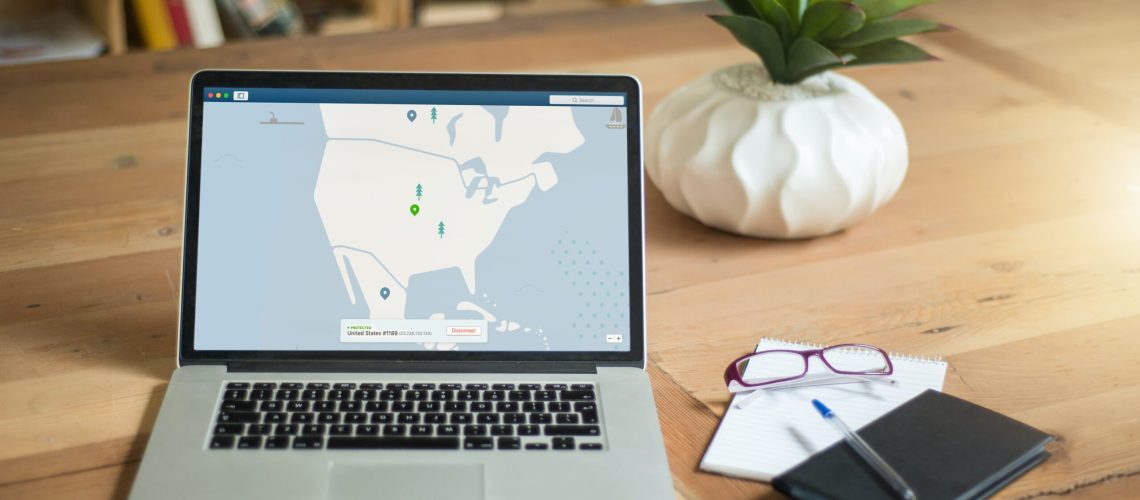Improving your digital privacy and security online is important for several reasons. For starters, it helps you avoid having your personal information stolen or used against you. Whether it’s someone breaking into your email account and reading all of your messages or using data from your social media accounts to draw up a profile on you, it’s important to stay safe online.
If someone steals your identity, they can use it to commit fraud and other crimes, which can have an impact on your credit score and even result in jail time for them if they get caught! It’s also important to be safe from hackers who may want to steal sensitive information from companies like Google or Facebook by compromising their security systems. It’s also worth noting that many internet users don’t realize how much data they’re sharing with third parties when they visit websites every day—and that information could be used against them if it were accessed improperly by someone else!
Here are some steps you can take to improve your digital privacy and security online:
Using Strong Passwords
Strong, unique passwords and two-factor authentication (2FA) are the best ways to protect your accounts from hackers. If you use the same password for every site, you’re really just asking for trouble. Hackers can easily guess your password if they know where you’ve used it before and what it might be based on.
So how do you make sure all of your passwords are unique? There are several sites that let you generate random passwords for you—here’s one we recommend! And two-factor authentication is an extra layer of protection for those times when someone gets their hands on your password or steals it through a phishing attack or other means. If a hacker tries to log in to one of your accounts but doesn’t have access to your phone or other device, they won’t be able to get in! Two-factor authentication works by sending a code over text or email every time someone tries to log in to an account—and only YOU have access to these codes!
Keep Your Software Up-To-Date
You know what’s annoying? When you’re trying to get work done, and all of a sudden your computer crashes. It’s even worse when you realize that it’s because there was an update for your operating system or software that you didn’t install, and now you have to spend all day fixing the problem. But it doesn’t have to be this way. Keeping your operating system and software up-to-date is one of the easiest ways to keep yourself safe from cyber attacks like malware and viruses. Software updates often include security patches that address vulnerabilities that could be exploited by attackers.
Be Careful What You Click On
Remember all those times when you were a kid and your mom or dad told you to be careful what you click on? Well, guess what? It’s still true today. When it comes to keeping your computer safe and secure, there are two things you need to know:
- Never click on links in emails from people who aren’t people you know (or even from people who are people you know). These links could be phishing scams that could get malware on your computer, so it’s not worth the risk.
- Make sure any attachments are from a trusted source before opening them—even if they’re coming from someone in your family! It’s better to err on the side of caution than risk getting hacked or getting malware on your computer.
Use Reputable Antivirus
Use a reputable antivirus program and keep it updated. This can help protect your device from malware and other security threats. Malware is any software that could cause harm to your device, such as viruses or spyware. These are usually delivered through email attachments or websites that try to trick you into downloading them. Spyware is software that monitors your activity on the device, like recording audio or taking screenshots of what you do on the screen. There are many types of malware, ranging from those that simply annoy users by displaying ads to those that can steal personal information like credit card numbers from websites.
Be Cautious About The Information You Share Online
I know you want to be safe, and I know that you’re probably doing your best to protect yourself online. But there are some things you can do that will make your safety even easier. First of all, avoid sharing sensitive information, such as financial data or personal identification information, over the internet. If you need to share something like that with someone else, use a secure channel like email or phone calls instead of social media or other messaging apps.

Second of all, be cautious about sharing personal information on social media platforms like Facebook and Twitter. Make sure your profile is set up so that only friends can see what you post—and don’t forget to check in with those friends every once in a while to make sure they’re still people who deserve access to your life!
Educate Yourself About Current Security Threats
Security is a constant concern in the digital age. As technology improves, so do the threats to it. That’s why it’s important to stay informed about current threats, and to adjust your habits accordingly. One of the most common ways hackers gain access to private information is by impersonating legitimate sites and services in order to steal passwords and other personal data. The best way to protect yourself from this type of attack is by educating yourself about which websites are safe, as well as how to spot phishing attempts before they happen.
Regularly Back Up Important Data
Data loss is a scary thought. The last thing you want to think about is what would happen if your device was lost or stolen, or if it got infected with malware—but the truth is, these things happen all the time. And when they do, being prepared for data loss can make recovery much easier.
This is why I would recommend you to regularly back up your important data. It’s easy to do, and it’s something that doesn’t take much time or effort at all.
What does backing up mean? Basically, it means saving copies of your files somewhere else on your computer or on an external storage device (like an external hard drive), so that even if something happens to your computer or phone, you’ll be able to recover them easily.
As you can see, there are many ways to improve your digital privacy and security online. I hope that the tips and information that I’ve shared with you today have been helpful! The best thing you can do is to put these tips into action, so that you can start protecting your digital privacy and security online. I wish you luck in keeping yourself safe online!
RUCHI RATHOR Founder & CEO
Payomatix Technologies Pvt. Ltd.
FOUNDER AND INVESTOR | PAYMENTS PROCESSING EXPERT | MERCHANT ACCOUNT SOLUTIONS | WHITE LABELLED PAYMENT GATEWAY | Dreamer, Creator, Achiever, Constantly Evolving
Website Ruchi Rathor: https://ruchirathor.com
Website Healing Heart https://thehealingheart.me/
Instagram https://www.instagram.com/_ruchirathor_/
LinkedIn https://www.linkedin.com/in/ruchirathor12/
Facebook https://www.facebook.com/ruchi.rathor.magnificient
Tumblr https://www.tumblr.com/blog/ruchirathor-thehealingheart
Medium https://medium.com/@ruchirathor_23436
Twitter https://twitter.com/ruchi_rathor

